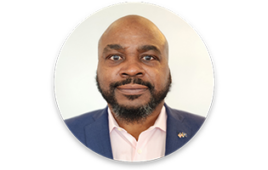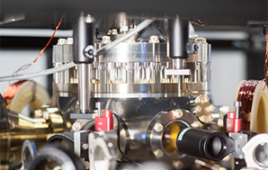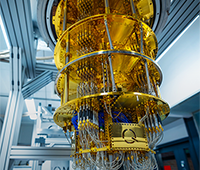There’s an App for That!
Computer programs for personal healthcare
 |
Twenty-odd years ago, moving to a new physician, or a referral to a new specialist, meant photocopying and transporting records from office to office. If you had a medical condition with potential emergency implications — diabetes, for example — you could wear a metal wrist tag with an identification number. If time and an available telephone presented themselves an EMT or emergency room doctor could call a central number, read off the tag identifier, and eventually find out about your condition.
If you needed a better explanation of your forthcoming operation or treatment you could hope your physician had the time (and vocabulary) to explain, read a medical textbook, or hope for the best. And, if you wanted to home-monitor your health, you could learn how to correctly take a sphygmomanometer measurement, step on a scale, and count your pulse with two fingers on your wrist.
Just as computers have modernized medicine in the doctor’s office and hospital, personal healthcare has advanced with a series of applications that allow us all to benefit.
- A home “blood pressure reader” can daily monitor — and record and analyze — your blood pressure, pulse and body temperature. Little or no training is required.
- Your wrist bracelet contains a chip, readable by devices in most ambulances, which can instantly warn of medical conditions and suggest appropriate treatment.
- And if your medical records are stored on an EMR system, transfer to a new physician or specialist is literally a matter of clicks.
- Having trouble understanding that informed consent form? A vocal output computer program (with, by the way, a soothing woman’s voice) will walk you through your procedure and all but hold your hand.
Twenty years — or 20 days — from now more dramatic changes are likely. Handheld devices have expanded far beyond cell phones to become minicomputers, cameras, game players and more. In development or, given the few weeks between this writing and publication, in stores are new “apps” that will allow connection of a sensor that can instantaneously send basic readings directly to your electronic medical record. You can store and analyze an ongoing record of blood pressure, pulse, urine analysis and temperature. A more sophisticated freestanding device that can conduct sophisticated blood analyses (and DNA tests) also is under development and, no doubt, the two will be blended in a few more years.
For many chronic diseases, daily tests and injections have been replaced with self regulating (cybernetic) automated pumps. Some diabetics no longer need to stick fingers and inject insulin: a pump smaller than an iPhone can provide a continuous exact measure of needed hormone. A pacemaker, constantly monitoring and pulsing as needed, is an analogous computerized device shrinking in size and expanding in function.
Is all of this threatening to become too complex to master? A not-for-profit has filed a preliminary patent application on an app that walks you through, step-by-step, any first aid situation. Is the victim breathing? If not, follow these cardio-pulmonary resuscitation steps. Skin clammy? Consider these heat stroke treatments. In the future, Boy Scout first aid kits are likely to “be prepared” with spare batteries, as well as spare bandages. The combination of
- access to a memory bank
- camera, voice, sensor and keyboard inputs
- vocal, visual screen and electronic signal outputs
- an incredibly fast processor
- the uplinks to make all of this interactive
makes a hand-held computer potentially a complete and complex tool for healthcare analysis, advice, measurement and some treatments. As the U.S. struggles to control healthcare costs, putting more power into the hands and devices of individuals and, hence, reducing the need for some physician interactions, it is a powerful grail. Computerized home healthcare has been evolving over the past 20 years, and will progress further and more rapidly in the future. With the speed of developments accelerating, this is one area — unlike flying cars and Mars colonies — where the wildest scientific predictions have been exceeded.
Is this all too overwhelming? Making you dizzy with excitement, concern and confusion? Don’t worry — there’s an “app” for that.
Sandy Weinberg is an associate professor of health care management, and Ron Fuqua is an assistant professor of health care management, at Clayton State University. They may be reached at [email protected].



